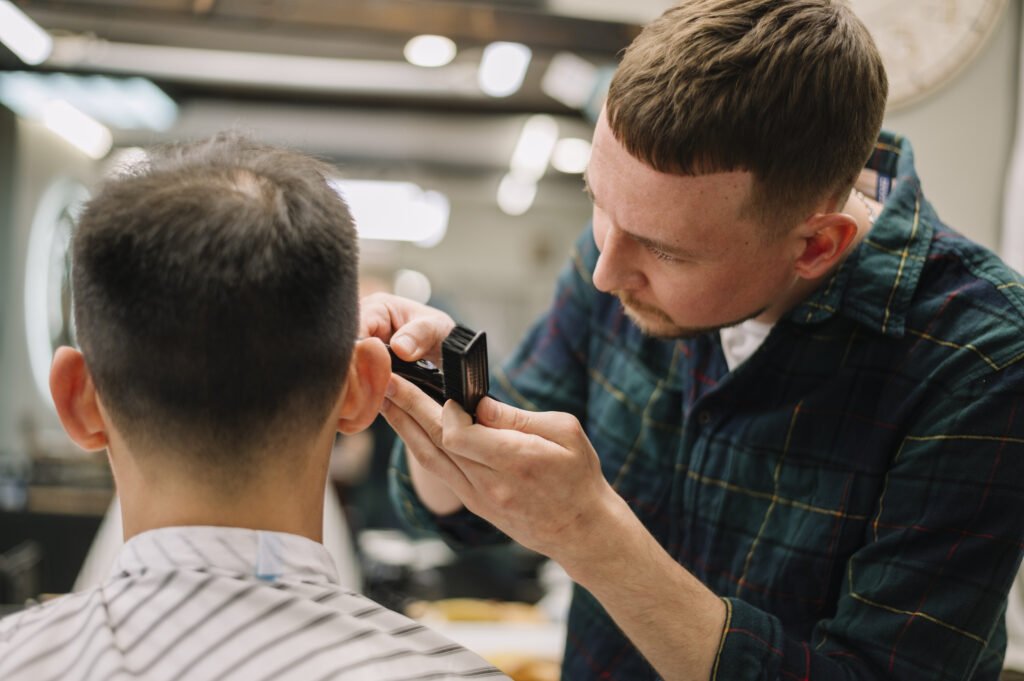Sometimes, cutting one’s hair is not quite so simple as style or maintenance; it can be a deeply personal decision that explodes with meaning. Changes in a woman’s life all the different feelings and experiences, new chapters come across through changing her hair. This small act could mean freedom, a fresh start, and one method of showing more confidence. For most people, it is a statement to the world that they are ready for change, stepping out of old patterns, and sometimes it’s about redefining their identity, too.
Historically and cross-culturally, women cutting their hair is about far more than a cosmetic choice; it’s one of quiet rebellion or some ways of asserting independence, offering a sense of control during transitional or uncertain times. It is a way to mark important life events, or perhaps give in to the pressures of society, or even for an emotional reason, just to feel lighter and more empowered. Through this writing, we will explore many reasons why a woman cuts her hair and what it could actually mean on a much deeper, mental-emotional level.
The Symbolism Behind Cutting Hair
The meaning behind this is often little to do with fashion for many women; it impinges on a deeper, at times very personal meaning, such as of identity, freedom, and transformation. Sometimes people consider hair among the most definitive parts of one’s appearance a feature we grow and nurture for years. To let go of it can feel symbolic, almost like shedding an old skin. When a woman gets her hair cut, it is often a physical manifestation of that inner change an unsaid declaration that something inside her is going to shift.
This act may also be a call for independence. Long hair has often been associated with womanhood and tradition. To cut it short, change the style, or shave off all of one’s hair is an act of rebellion against societal norms that determine what a woman should look like. It is ownership; it is a means of saying, “I am choosing who I am, not because of expectations.
Haircuts can mark new chapters in one’s life; sometimes, it is a means to usher in an end or even a renewal. Whether someone enters through the process of a breakup or a personal loss, or simply the start of something new in their life, this inclination to cut hair becomes a means to let go of the past and step into the future with confidence. Each snip might be symbolic of shedding the weight of memorized memories, exiting habits, or identities that no longer fit onto the persona of an individual, paving way for growth. And it is during these moments that a haircut ceases to be a simple change of appearance; henceforth, it is an act of troupe-like self-expression and metamorphosis.
Hair and Emotional Transformation
This might even become a way for a woman to show the deep emotional change that usually depicts ups and downs in women’s lives. Hair tends to absorb moments, memories, and sometimes a haircut becomes a means of reset and release from all that no longer serves. A haircut may mean going forward, changing phases, stepping into a new emotional space after very strong experiences such as a heartbreak, grief, or even self-doubt.
The changes in hair and mental well-being don’t stop at appearances. To many women, a haircut means returning to control when life isn’t going in the right direction. In periods of transition, it is one area where they are sure with a clear, visible choice and can see an almost immediate change. At times, this shift reflected in mirrors echoes what is going on inside a reminder that change is plausible and attainable, allowing them to rewrite the script.
In this way, the act of cutting hair turns emotional, releasing layers of identity that one may well feel are obsolete or tied back to past events in life. With every snip, it would have been a case of feeling lighter, not only physically but emotionally, as if the act itself vacated emotional clutter. This new hairstyle symbolizes a rejuvenated self, one that is ready for a leap forward, armed with a fresh twist in life and improved emotional acuity.
A Historical and Cultural Perspective

Historically, a woman cutting her hair has been both a powerful gesture and an often contentious one, reflective of certain cultural values and historical latitudes. In many cultures throughout historical periods, a woman’s style and length of hair have repeatedly been used to identify social status, morality, and even the position of motherly dispensation within such cultural circumstances. Generally, in most societies, long hair has been considered an important attribute associated with femininity and virtue. Thus, if a woman cut her hair short, it was an act generally interpreted as defiance against cultural norms, a bold departure from them.
In the West, the bob haircut became an admittedly revolutionary symbol of independence and liberation for women in the early years of the 20th century. The iconic flapper style of the 1920s, featuring a sleek short bob, was not only a fad but signified one generation of girls who came out of confining roles, claimed their rights to vote, and started going out into the world of work. With the feminist movement of the 1960s and 1970s also came a new haircut for women, shorter and bolder, symbolic of a break in tradition beauties.
this is not to say that hair hasn’t held great meaning for many Eastern and Indigenous cultures, often being conceptualized as quite spiritual in its extension of the self. Indeed, within some Native American tribes, it was only within an act of mourning or at a time of passage highly intended to denote personal transformation that one would commit to a haircut. In other arenas religious or social rites, for example haircuts symbolically depict humility, sacrifice, or preparation for another stage of life.
Today, hair is one of the most personal yet potent mediums by and through which women continue to negotiate identity, self-expression, and cultural linkage. A change in cut or style often represents for many women a statement about who they are, their place of origin, and what cultural stories they transport with them. There is, in every snip, the linkage of the individual to the bigger social history, a reflection of the past that goes on shaping choices and perceptions in the present.
The Liberation of Letting Go
Cutting hair can be an entirely free act of release for many women. Hair holds memories, whether tied to relationships, old insecurities, or stages in life that we have outgrown. Cutting it off means, in a way, casting away the baggage of past attachments and burdens. To part with hair can be an act as cathartic as a deep breath, a moment to symbolically discard what no longer belongs and make way for something new.
This is a liberation not only from the physical act of release but also from the change in emotions it often brings. When women cut their hair, especially in a bold or dramatic way, it is because they are ready to embark on a new journey, free from constraints or past expectations. The lighter weight of their shorter hair can feel like an outward reflection of inner clarity, a reminder that they are in control of their choices and unafraid to make them.
In this regard, the loss of hair becomes an act of women’s empowerment a declaration that they choose themselves over the pressures of society, memories, or even past versions of who they once were. With each falling lock, freedom reverberates a renewal within, beyond the physical to the soul. It becomes a strong declaration of trust in the self, resilience, and the guts to move forward unencumbered and open to whatever the future may hold.
Final thoughts
When a woman cuts her hair, it’s often not just about changing her look. It’s a personal choice that reflects her journey, identity, and inner strength. A haircut can show her desire to redefine herself, representing freedom, transformation, or a fresh start. Influenced by both history and personal reasons, cutting her hair is a powerful act, reminding her of her strength and courage to embrace change. Through this small act, she takes control of her story, allowing herself to grow, evolve, and confidently move forward into who she is becoming.


